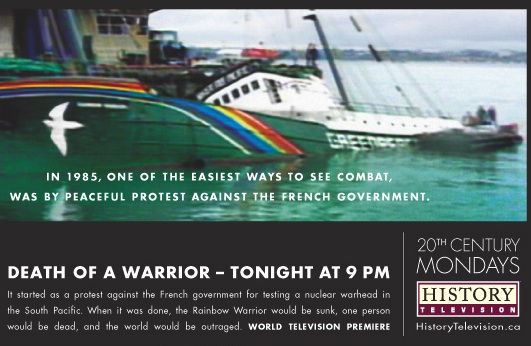
Murray Horton
OPINION: The 25th anniversary of NZ’s nuclear-free law is a worthy cause for celebration for what was, and is, a fantastic achievement. It is also timely to remember that it was accomplished by hundreds of thousands of ordinary New Zealanders who were prepared to confront the state and its pro-nuclear, pro-war, pro-ANZUS status quo.
They directly confronted the US nuclear machine and its New Zealand enforcers on the water; on land they confronted and defeated a colonial mentality that swapped from gutlessly hiding behind Mother England’s skirts to gutlessly hanging onto Uncle Sam’s coat tails.
The victory belongs to the New Zealand people; the headline hogging politicians only surfed the tsunami of public opinion. To see Richard Prebble on television last week undeservedly basking in the limelight was seriously sick-making.
But New Zealanders can ill afford to rest on our nuclear-free laurels. Much remains to be done.
For nearly 60 years Christchurch Airport has been the site for a US military base, albeit one that is a medium level transport base. How many New Zealanders know that US military planes using it operate under exactly the same “neither confirm nor deny” policy that has seen US warships banned from New Zealand since 1987?
Christchurch remains the only city in Australasia to host a US military base.
Spy bases
This country still operates two “New Zealand” spy bases – at Waihopai and Tangimoana. In the case of Waihopai, it is a US spy base in all but name, operating as an outpost of the US National Security Agency in rural Marlborough.
Details of all three bases can be found on our CAFCA website.
In the 25 years since New Zealand became nuclear free by law, our governments, whether National or Labour, have continued to help the US fight its seemingly endless wars. Currently NZ has troops in Afghanistan, effectively acting as mercenaries helping the US to prop up a corrupt regime of opium barons, warlords, murderers and misogynists, in a totally meaningless war.
Within the past couple of months, NZ has sent troops to train on US soil; hosted US combat troops here; and sent NZ warships to take part in US naval war exercises – all of these for the first time since NZ was unceremoniously kicked out of ANZUS in 1986 for having the unmitigated gall to put our own national interests first.
Wikileaks reveals that full intelligence relations between NZ and the US were covertly resumed in 2009; plus revealing a whole lot more details about the extent of that cosy covert relationship, right through key organs of the NZ government.
All in all it adds up to a concerted drive to putting the “NZ” back into ANZUS and turning back the clock to the good old days when NZ was a loyal satellite of the American Empire.
Unfinished job
The nuclear-free movement in this country did a great job but it’s not finished by any means.
And the powers that be in both Washington and Wellington are doing their level best to completely undo it. They need to be forcefully reminded of the successful campaign of the New Zealand people for an independent foreign policy, of which the nuclear-free law was an important part; a policy which rightly earned this country both international admiration and self-respect.
Instead of restoring military and intelligence ties with the US, NZ needs to be breaking the chains that bind us to the world’s biggest warmonger.
Murray Horton is organiser of New Zealand's Anti-Bases Campaign (ABC) in Christchurch.
This work is licensed under a Creative Commons Attribution-NonCommercial 3.0 New Zealand Licence.




